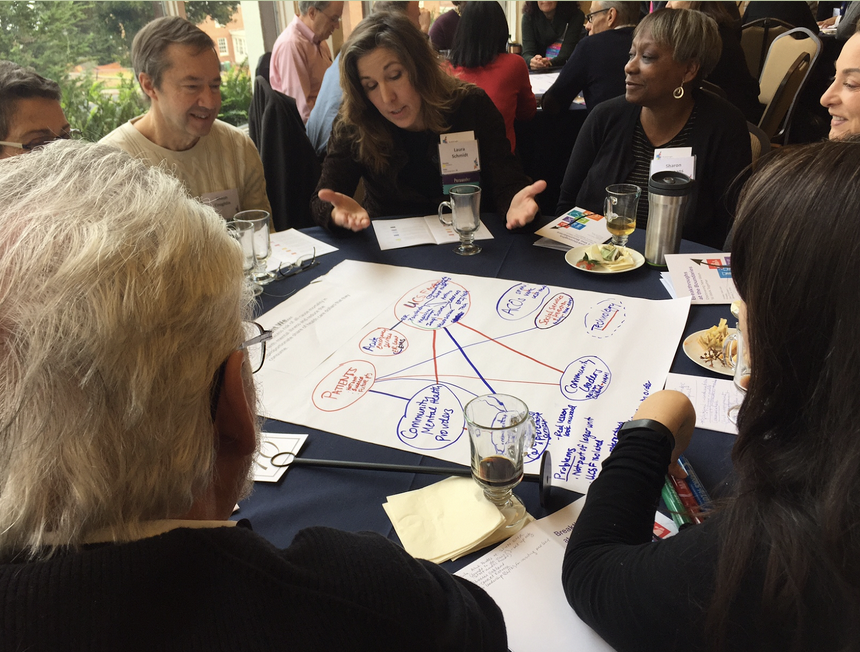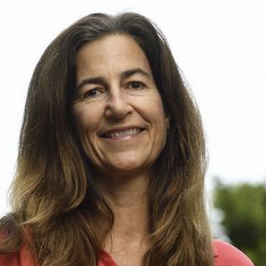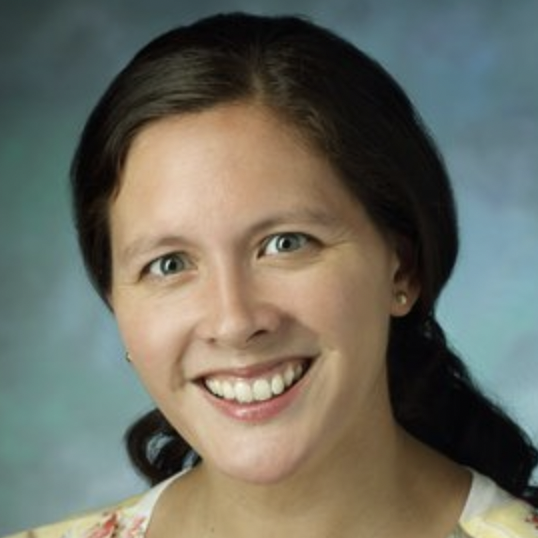 It is increasingly apparent that success in a highly interdependent world depends on identifying and strengthening the networks through which value is created (Adner & Kapoor, 2010). These networks often span multiple organizations and multiple levels - from leadership networks, to networks across the workgroups engaged in value creation, to client-centered networks at the site of value creation. Achieving desired performance outcomes requires the ability to identify, analyze and strengthen these networks.
It is increasingly apparent that success in a highly interdependent world depends on identifying and strengthening the networks through which value is created (Adner & Kapoor, 2010). These networks often span multiple organizations and multiple levels - from leadership networks, to networks across the workgroups engaged in value creation, to client-centered networks at the site of value creation. Achieving desired performance outcomes requires the ability to identify, analyze and strengthen these networks.
Value-Based Healthcare
For example, the move towards value-based healthcare has increasingly shined a light on the importance of social factors, such as safe housing, adequate food and adequate financial resources, for impacting patients’ health and well-being (Mays, Mamaril & Timsina, 2016). Population health initiatives such as accountable care organizations have tremendous potential to reallocate resources from acute medical care to prevention and social services (Fisher et al, 2012; Lewis et al, 2017). As the definition of care and the locus of control begins to shift towards the joint production of health, community actors such as departments of public health also have a role to play. However, there are very few models for how these disparate sectors can work together to reduce health inequities.
Structures Are Necessary But Not Sufficient
While structures are necessary for healthcare integration, they are likely not sufficient (Burns, Nembhard & Shortell, 2022). Relationships are a key ingredient of effective coordination when actors are highly interdependent and when they are carrying out work characterized by high levels of uncertainty and time constraints (Gittell, 2002; Faraj & Xiao, 2006; Okhuysen & Bechky, 2009; Singer, et al, 2011). Relational coordination is the coordination of work through relationships of shared goals, shared knowledge and mutual respect, supported by frequent, timely, accurate, problem solving communication in the context of interdependence, uncertainty and time constraints (Bolton, Logan & Gittell, 2021). While this theory has often been applied within organizations, it can be expanded to address cross-organizational (Gittell & Weiss, 2004) and cross-sectoral coordination (Caldwell, Roehrich & George, 2017), as well as coordination with patients and families (Warfield, et al, 2013; Cramm & Nieboer, 2016). Likewise, recent research suggests that integrating this theory with social network theory and analysis is likely to generate insights and strategies that enable multi-level improvement in healthcare integration (Burns, Nembhard & Shortell. 2022; Gittell & Ali, 2021).
We invite you to join this Healthcare Innovation Lab with a focus on strengthening networks for equitable and integrated healthcare. It is a large umbrella with multiple projects underway, and more to come.
Relating Across Difference - An Improvement Process for Clinical Unit
Relational Coordination in the Veterans Health Administration
The Better Care Plan
Resources
Shortell, S. M., Toussaint, J. S., Halvorson, G. C., Kingsdale, J. M., Scheffler, R. M., Schwartz, A. Y., ... & Wilensky, G. (2023). The Better Care Plan: A blueprint for improving America's healthcare system. Health Affairs Scholar, 1(1), qxad007.
RC Cafe: Strengthening networks for integrated equitable healthcare: How can the Better Care Plan help? Relational Coordination Collaborative. May 9, 3-4:00 pm.
Academy of Management Workshop: McDonald, K. & Nembhard, I. (2023). Strengthening networks for equitable and integrated healthcare. AOM Annual Meetings.
Published Article: Burns, L. R., Nembhard, I. M., & Shortell, S. M. (2022). Integrating network theory into the study of integrated healthcare. Social Science & Medicine, 296, 114664.




